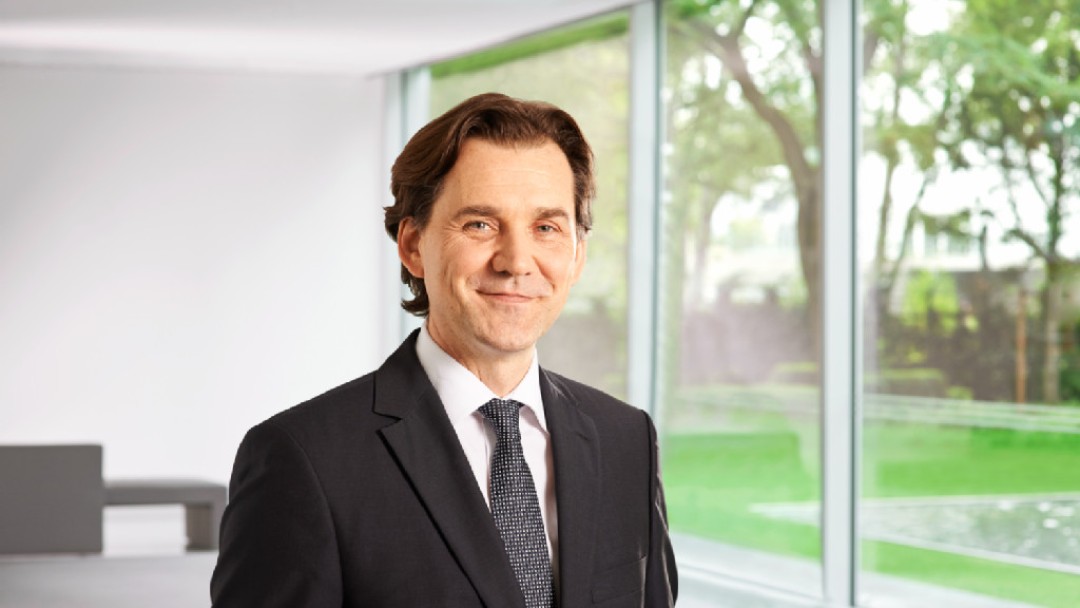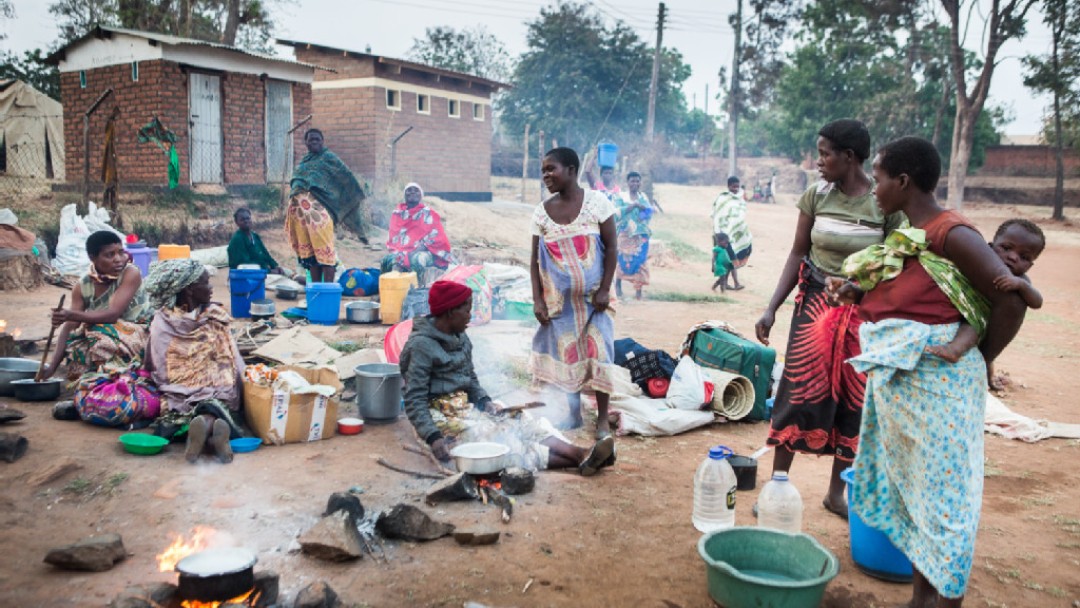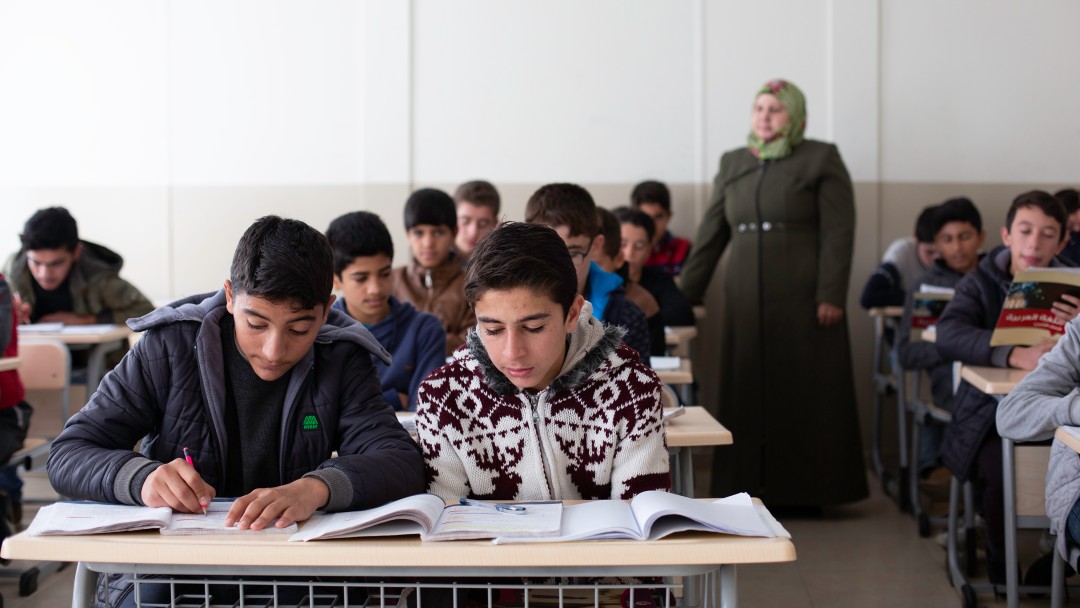News from 2020-01-27 / KfW Development Bank
“We’ve come a long way in the battle to alleviate poverty”
Roland Siller discusses SDG 1 (“No poverty”)

According to the World Bank’s calculations, around 700 million people currently live in extreme poverty on meagre incomes. If additional factors are taken into account, as many as 1.4 billion people are regarded as poor according to a UN poverty index. They are heavily disadvantaged when it comes to education, health care and their standard of living. Alleviating poverty is one of KfW Development Bank’s most important goals, says Senior Vice President Roland Siller in an interview.
Mr Siller, SDG 1 (“No poverty”) is a very ambitious goal. The aim is to ensure nobody is living in extreme poverty by 2030. However, the term “poverty” can also be relative. How do you delineate who is poor and who is not?
Roland Siller: Of course, the term has various dimensions. For the time being, the international community has agreed to use daily income in US dollars as a measure of poverty, with anyone living on less than USD 1.90 a day deemed to live in absolute poverty. This definition is a useful way to arrive at an estimate, although it fails to reflect the full complexity of the issue. That’s where the concept of relative poverty comes in.
Relative poverty is experienced by people who are excluded from certain opportunities considered a basic need in the country where they live. This includes things like access to education and adequate health care.
When it comes to absolute poverty, the international community has succeeded in reducing the numbers. The figure has now dropped from around 1.9 billion extreme poor in the 1990s to around 700 million today. That said, inequality has risen, with the gap between rich and poor widening in many countries.

As a long-standing senior project manager, first vice president and now senior vice president at KfW, you’ve seen many of the projects in Africa, Asia and Latin America that KfW has promoted. Where did you encounter the most abject levels of poverty?
Siller: Of course, the situation is different in every country. But I sometimes see poverty as particularly abject in countries where the differences between rich and poor are extremely strong; where absolute poverty exists in countries that actually have the resources and financial means to enable everyone to have a better life.
And needless to say, poverty and hardship are particularly severe in fragile contexts. When people have lost everything due to wars and conflicts; when they’re left with practically nothing; when they have had to survive in refugee camps for years and years; and when they have little hope of the situation improving due to difficult political circumstances, as conflicts are just not being resolved. In failed states like these, the numbers of people in poverty have hardly dropped at all in recent years.
Is that because it’s so difficult to tackle poverty in such fragile situations?
Siller: Exactly right. And when it comes to direct emergency aid in areas of conflict, it tends to be UN organisations or non-governmental humanitarian organisations who are on the scene first. At KfW level, we provide long-term help to stabilise people’s living conditions – for instance, by restoring the power supply and providing them with running water, then later by providing education and health care. In Turkey, we’ve helped around 300,000 Syrian refugee children to gain access to schooling. What’s more, we’re supporting people with cash-for-work programmes, helping them to find employment again and earn a living.

As well as helping to create employment opportunities, there are also social protection programmes – things like cash transfers that provide money to people in deep poverty without requiring anything from them in return. Is that developmentally worthwhile?
Siller: At first glance, that sounds like a difficult approach to accept. But in actual fact, it can make a very meaningful difference. That’s because the target group is not just impoverished people, but what you might call the ultra-poor. In countries that are already very poor, we’re helping to reach the people who are at the very bottom of the social hierarchy. It’s about helping to make sure people have something to eat twice a day; it’s about helping to prevent stunted growth and development brought on by malnutrition.
It’s not until they can meet to fundamental needs like these once again that people have the chance to free themselves from poverty.
You’ve already addressed the growing inequality between rich and poor in many countries. Banks tend to have a reputation for abetting this inequality with their business policy. Yet KfW’s mission is quite different. Under SDG 10, this is known as “Reduced inequalities”. As a financial institution experienced in development policy, how can KfW contribute to reducing inequality?
Siller: Our goal is to bring about sustainable growth in our partner countries on behalf of the Federal Government. Our work looks at the environment, economy and also social issues. If you look at the world as a whole, inequality is lowest in Europe. That’s part of our DNA, and we’re also keen to help make this a reality on a global scale: enabling people from all social groups to participate in civic, social and economic life on a broad scale while reducing inequality.
How does KfW’s work differ in developing countries and emerging economies?
Siller: In emerging economies, our approach to work is different than in especially poor countries. Firstly, our focus here is on protecting global public goods like the climate and the environment – for instance, through special projects for preserving the rainforest. Then we also focus on creating value and encouraging broad-based growth – not growth that only serves the few.
To achieve this, we support small and medium-sized businesses or improve the power and water supply in disadvantaged regions. Investments like this help to tackle poverty indirectly. To alleviate poverty directly, emerging economies have to take action on their own initiative.
What has KfW achieved when it comes to alleviating poverty?
Siller: As I explained earlier, our work has contributed to a reduction in the number of people around the world living in absolute poverty. We’ve helped indirectly through the aforementioned assistance with investments, the creation of jobs and the development of sustainable infrastructure that has improved economic opportunities in the countries in question. We’ve helped directly through cash-for-work programmes, which enable people to earn their own living. And also through the cash transfers that help the ultra-poor escape poverty and hardship.
However, there’s still a great deal to do. In fragile contexts, the situation remains difficult. I’m firmly of the belief that helping people to survive crises and creating new opportunities for them remains a key challenge in development cooperation within areas of conflict.

Share page
To share the content of this page with your network, click on one of the icons below.
Note on data protection: When you share content, your personal data is transferred to the selected network.
Data protection
Alternatively, you can also copy the short link: https://www.kfw-entwicklungsbank.de/s/enzBWrMC.CJmA
Copy link Link copied